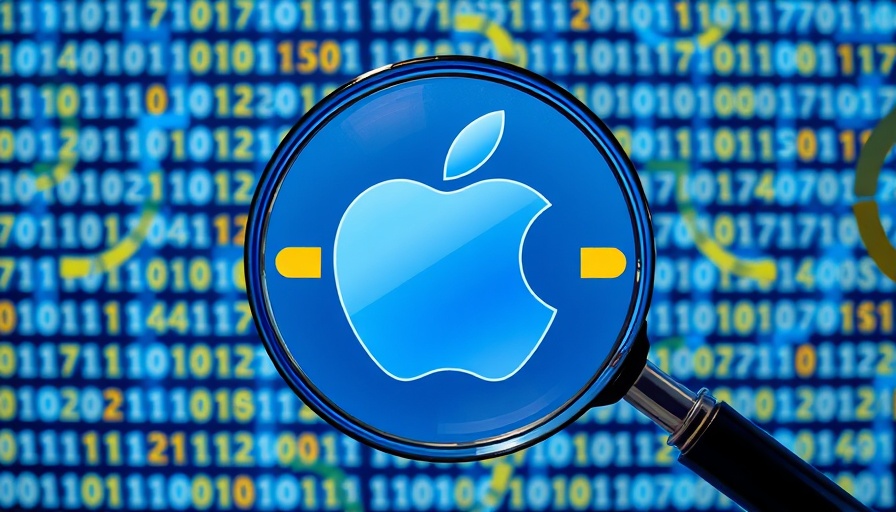
Apple's Bold Move: Reshaping the Future of Browsing
In a decision that could significantly disrupt the digital landscape, Apple is gearing up to overhaul its Safari web browser by integrating AI search options. This transformation, discussed by Apple executive Eddy Cue during recent antitrust hearings, is poised to challenge Google’s longstanding dominance in the search engine market. As the tech giant considers incorporating alternative AI-driven search providers like OpenAI and Perplexity AI, the ramifications of this shift are beginning to resonate throughout the industry.
Implications for Google and the Search Landscape
The potential revamp of Safari is particularly critical given that Google has relied heavily on its partnership with Apple, paying approximately $20 billion annually for the lucrative default search engine spot on Safari. Analysts have pointed out that this arrangement accounts for around 36 percent of Google's search advertising revenue generated through Safari. As Apples initiates changes, the traditional stronghold of Google’s near-monopoly—holding almost 90 percent of the search market share—might be at risk.
Understanding User Behavior Shifts Toward AI
Recent trends signal a poignant shift in user behavior, reflecting an increasing preference for AI-powered search solutions. This change in consumer mindset was marked by a reported decline in search volumes on Safari, sparking concerns within Google’s corporate corridors. The innovative capabilities of AI tools can provide users with more contextual and meaningful search results, setting the stage for a competitive drive among search platform providers.
Why Apple's Strategy Could Shatter Google's Stronghold
D.A. Davidson analyst Gil Luria highlighted that the potential loss of Google’s exclusivity on Apple devices could have profound repercussions, even without further actions from competitors. Should users gravitate towards alternative search options, advertisers may divert substantial portions of their budgets from Google, diminishing its dominant position in the market. The shifting landscape raises critical questions about the adaptability of a giant like Google, especially in the face of innovative newcomers.
Counterarguments: Google’s Strategic Defense
However, Google is not sitting idle. To stave off potential losses, the company has rolled out its “AI mode” to bolster its search capabilities. Additionally, Google’s CEO Sundar Pichai mentioned plans to collaborate with Apple to integrate its own AI technology—Gemini—into future devices, further solidifying its standing in the search domain. This highlights the notion that while challenges abound, established players like Google still have resources and strategies to navigate these waters.
The Road Ahead: Predictions and Opportunities
The coming years are likely to witness a seismic shift within the search industry, raising questions about the future dynamics of user interaction and advertising dollars. Industry foresight suggests that other players outside Google may emerge, fueled by advancements in artificial intelligence. Such developments hold the potential to democratize the search engine landscape, enabling a more diversified ecosystem that benefits users and advertisers alike.
Conclusion: The Call for Attention
The implications of Apple’s Safari revamp extend beyond corporate strategies; they touch upon the very core of how we engage with digital information. In an era where innovation can redefine norms, tracking these changes closely has never been more crucial. As consumers, industry experts, and investors alike, it’s important to remain aware and ready to adapt to this evolving environment.
Stay informed as these developments unfold, shaping the future of digital interaction and advertisement.
 Add Row
Add Row  Add
Add 




 Add Row
Add Row  Add
Add 

Write A Comment